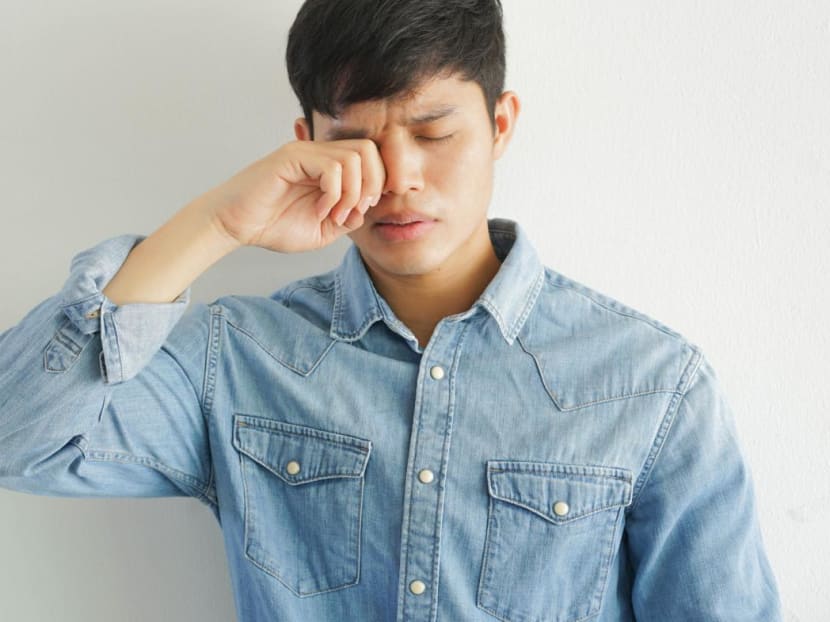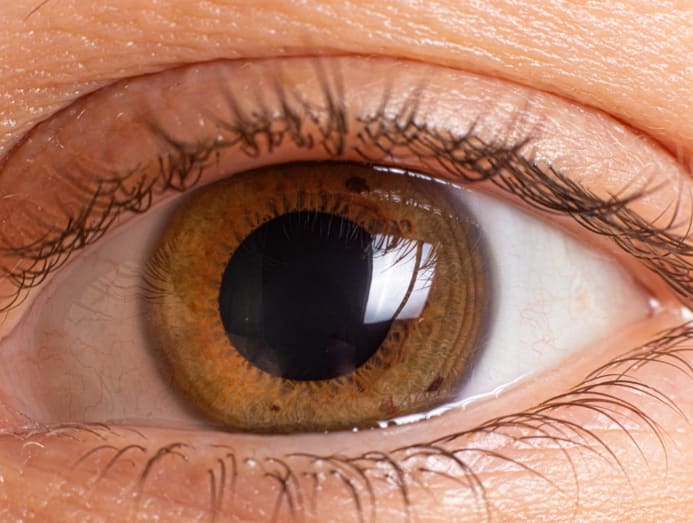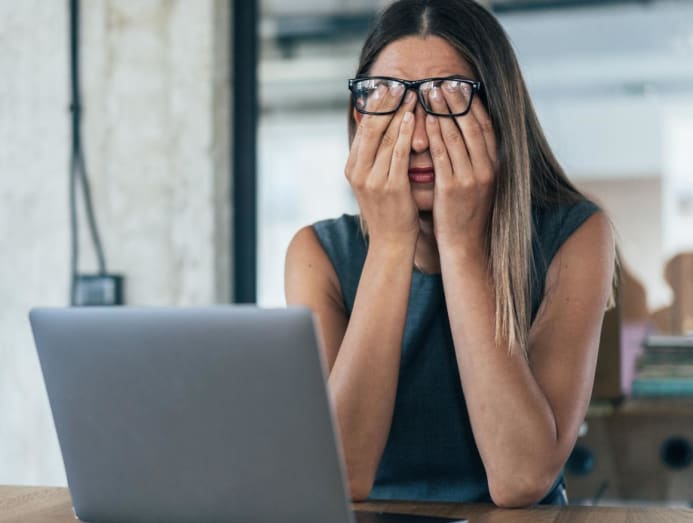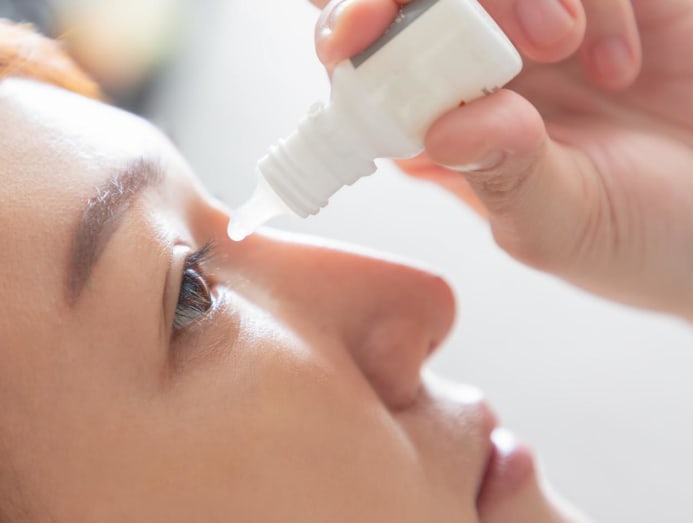Here's why it’s not a good idea to keep rubbing your eyes (even though it feels so good)
If you rub too hard and end up scratching or tearing off a part of your cornea, it may keep coming off. Ouch.

(Photo: iStock/Chainarong Prasertthai)
It’s never a good move to over-do things. Take rubbing your eyes, for instance. Everyone does it when they feel dry, tired, itchy or irritated by allergies. And sometimes, it just feels, well, good to do it.
That’s because rubbing your eyes presses down on the eyeballs and that action can stimulate the vagus nerve, which slows down your heart rate and relieves stress.
The most common reason for rubbing your eyes is itchiness. And here’s the thing: If your eyes are persistently itchy, it could be more than just dust and pollen; you may have what the doctors call blepharitis.
“Itchiness around the eyes is often due to the over-production of oily secretions and the clogging of the oil glands on the eyelids,” explained Dr Johnson Tan, a specialist in ophthalmology and a consultant at Raffles Eye Centre.
“The oil is essential to prevent the over-evaporation of tears on the cornea surface. However, excessive oil and the clogging of the oil glands’ openings can cause inflammation and dry eyes, together with itchiness of the eyelids,” he said.

WHY IS IT BAD TO RUB MY EYES?
When you vigorously and/or frequently rub your eyes, there’s an increased risk of you scratching your cornea with a fingernail or dislodged lash hair. Think of a scratched cornea like a scraped knee after taking a fall, said Dr Tan.
“Excessive rubbing causes the skin layer of the cornea (the epithelium) to come off.” Occasionally, a fingernail may also catch the cornea surface and cause the epithelium to tear off, he said. Ouch.
More bad news. After the epithelium heals, it can “occasionally come off spontaneously”, said Dr Tan, describing a condition called recurrent corneal erosion. Your eyes naturally dry up during sleep, causing the eyelids to stick and tug on the epithelium when you open your eyes in the morning. So when the healed epithelium is no longer “strongly adherent to the underlying cornea”, you risk tearing it again.
“For mild cases, patients need to lubricate the affected eye often, especially before sleep and upon waking up,” said Dr Tan. “Severe cases may require a simple procedure to be done.”
And scratched corneas occur more often than you think. At the Singapore National Eye Centre (SNEC), two to four such cases are seen every week. “This number may actually be higher in our A&E service or primary eye care clinics,” said Associate Professor Marcus Ang, a senior consultant with SNEC’s Cornea and External Eye Disease Department.

There’s also the chance of you worsening pre-existing eye conditions such as glaucoma, according to Australia’s Vision Eye Institute. The pressure you exert can disrupt blood flow to the back of the eye and cause nerve damage and ultimately, permanent vision loss.
Rarely, persistent eye rubbing could lead to keratoconus, a condition that has a genetic predisposition, said Assoc Prof Ang. Instead of a sphere-like dome, your cornea starts to take on a cone shape from all the rubbing. The new shape affects how light is bent towards your eyes and in turn, compromises your vision. “This is very uncommon, but still, an important reason not to rub our eyes often,” he said.
HOW DO I KNOW IF I’VE DONE IT?
You have over-done the rubbing if your eyes are teary and red, and your vision is blurry. And no matter how much lubricating eye drops you apply, the symptoms don’t seem to be resolved, said Assoc Prof Ang.
Added Dr Tan: “There is often a sudden, sharp, poking pain associated with excessive tearing. This is worsened with blinking”.

Corneal abrasion typically takes three to five days to heal on its own, said Dr Tan. But see a doctor, he advised, if you have any of these symptoms:
- The pain is excessive or continues to worsen
- The symptoms do not improve after a day
- You see a white spot on the cornea suggesting a corneal infection
The broken skin on the cornea can predispose your eye to infection, said Dr Tan. And if the infection is not treated promptly, it can result in a permanent decrease in vision.
The takeaway message is, of course, don’t rub your eyes. To keep your itchy fingers away, use a topical lubricant eye drop, which can be purchased over the counter at any pharmacy. "It should relieve the itch and dryness or discomfort,” said Assoc Prof Ang.






